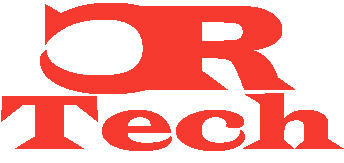Choosing the right database service for your project can feel like a daunting task. You’ve probably come across AWS Aurora and RDS while exploring Amazon’s options for managed databases. But what’s the difference? More importantly, which one should you choose for optimal performance? Let’s break it down step by step.
What Are AWS Aurora and RDS?
First things first, let’s define the players.
Amazon RDS (Relational Database Service) is AWS’s managed database service that supports popular engines like MySQL, PostgreSQL, MariaDB, Oracle, and SQL Server. It simplifies the setup, scaling, and maintenance of traditional relational databases.
Amazon Aurora, on the other hand, is AWS’s homegrown, high-performance database engine. It’s compatible with MySQL and PostgreSQL but offers unique features and optimizations you won’t find in standard RDS instances.
Key Differences
So, what makes Aurora and RDS different? Here’s a side-by-side comparison of the features that matter most.
1. Performance
Aurora is designed for speed and reliability. AWS claims it’s up to five times faster than MySQL on RDS and three times faster than PostgreSQL on RDS. Why? Aurora uses a distributed, fault-tolerant storage system that automatically replicates data across three availability zones.
RDS, while solid for many use cases, doesn’t match Aurora’s performance levels. It’s more suitable for applications with moderate workloads where supercharged speed isn’t critical.
2. Scalability
With Aurora, scaling is almost seamless. It allows for up to 15 read replicas and can handle up to 64TB of storage, automatically scaling as your data grows.
RDS also supports read replicas, but the number varies depending on the engine (typically five). Storage scaling requires more manual intervention, which can be a bit of a hassle.
3. Cost
Cost is where the conversation gets interesting. Aurora is generally more expensive than RDS, but its performance gains might justify the price for resource-intensive applications.
If you’re running a smaller application or a development environment, RDS offers a more budget-friendly option.
When Should You Choose AWS Aurora?
Aurora shines in high-traffic applications where performance and scalability are key. Think e-commerce platforms, real-time analytics, or any system with a heavy read-write workload.
For example, if you’re running an online store during Black Friday, Aurora’s ability to handle sudden traffic spikes could save the day (and your revenue).
When Is RDS a Better Fit?
RDS is ideal for smaller-scale applications, development environments, or when you’re working with a specific database engine like Oracle or SQL Server. It’s simple, cost-effective, and gets the job done without the bells and whistles of Aurora.
Say you’re managing a WordPress blog or a small internal tool. RDS will likely meet your needs without breaking the bank.
Other Considerations
Backup and Recovery
Both Aurora and RDS support automated backups and point-in-time recovery. However, Aurora’s backups are continuous and stored in S3, which makes recovery faster and more reliable.
Security
Both services integrate seamlessly with AWS’s security features, including VPC, IAM, and encryption options.
Compatibility
If you’re transitioning from an on-premises MySQL or PostgreSQL database, RDS might offer an easier path. Aurora, while compatible, introduces proprietary features that may require some adjustments.
Conclusion: Aurora or RDS?
Choosing between Aurora and RDS comes down to your specific use case. Here’s a quick recap:
- Go with Aurora if you need top-notch performance, automatic scaling, and can handle the higher costs.
- Stick with RDS for smaller workloads, specific database engines, or when you’re working within a tighter budget.
Still unsure? Start with RDS, and if your application outgrows it, migrating to Aurora is relatively straightforward.
Learn More
Ready to dive deeper? Check out these resources:
And if you’re working on AWS Lambda, don’t miss our post on setting up Lambda with Python to automate your backend tasks.
Got questions or experiences with Aurora or RDS? Share them in the comments—we’d love to hear what worked for you!
Got a project that needs expert IT support?
From Linux and Microsoft Server to VMware, networking, and more, our team at CR Tech is here to help.
Get personalized support today and ensure your systems are running at peak performance or make sure that your project turns out to be a successful one!
CONTACT US NOW

